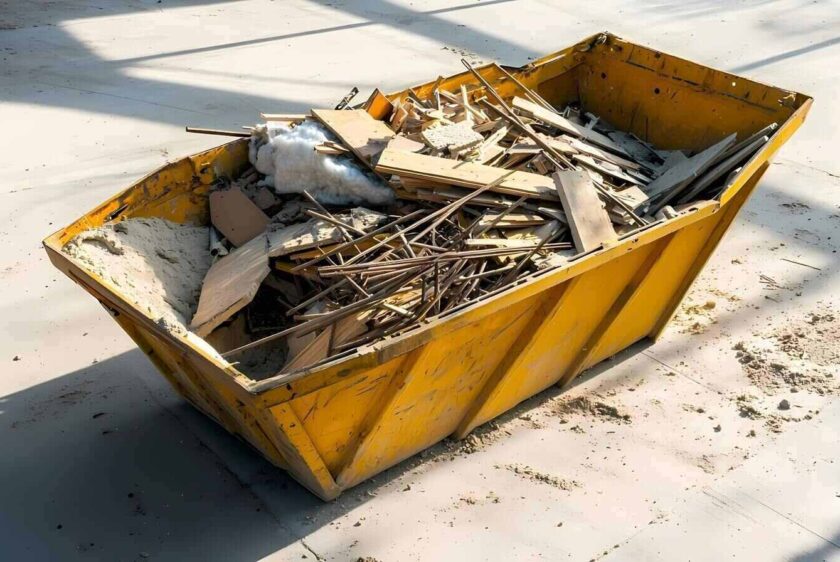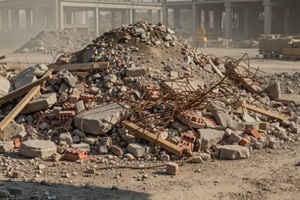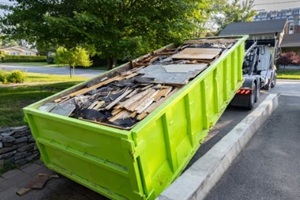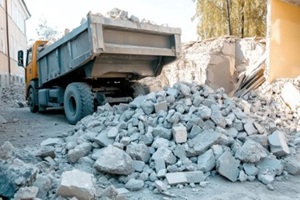
Why Proper Debris Disposal Matters for Safety and Compliance
Construction project managers and contractors understand that standard waste containers often fall short when it comes to managing site debris. The sheer volume and variety of materials generated on construction sites can quickly overwhelm traditional disposal methods, leading to inefficiency and potential hazards. However, by tackling debris management strategically, site managers can avoid non-compliance with local and state regulations as well as costly fines and project delays.
Proper debris disposal practices are more than regulatory compliance; they promote site safety and environmental responsibility. From on-site workers to neighboring businesses and the general public, effective waste management protects countless individuals from potential harm. For many construction projects, renting industrial-grade dumpsters offers a comprehensive solution that addresses both volume and regulatory concerns.
Safety Compliance Issues With Debris Disposal

Construction professionals must adhere to regulations governing debris disposal. These rules can vary significantly between states, counties, and even municipalities, making compliance an important part of any project to avoid severe consequences, including hefty fines and potential project shutdowns.
Most jurisdictions share some common ground when it comes to construction waste management:
- Proper Disposal Methods: Each locality specifies approved disposal sites and methods for construction debris. For instance, in Virginia, improper disposal of construction waste on unauthorized public or private property can lead to fines up to $5,000.
- Material Segregation: Many areas now require the separation of recyclable materials from general construction waste. Failure to properly segregate materials can be classified as improper waste disposal, even if unintentional.
- Prohibited Practices: Certain disposal methods are universally banned across most jurisdictions. These typically include open dumping, burning of construction waste, and disposing of hazardous materials with general debris.
Partnering with licensed waste management services and utilizing designated disposal facilities can help avoid both fines and environmental issues.
What’s Not Allowed In Debris Disposal and Why
Construction waste management involves strict regulations on what can and cannot be disposed of in standard dumpsters. Certain materials are universally prohibited due to their potential environmental and health hazards:
- Electronic waste (e.g., microwaves): Contains harmful components that can leach toxins into soil and water.
- Batteries: Risk of chemical leakage and potential fire hazards.
- Oil and other petroleum products: Can contaminate soil and water sources.
- Hazardous materials: Pose significant risks to human health and the environment.
- Medical waste: Requires specialized disposal to prevent spread of pathogens.
- Biological waste (including animals): Can cause sanitation issues and spread diseases.
- Asbestos: Requires specialized handling due to severe health risks.
These items require special handling and disposal methods to ensure safety and environmental protection. Disposing of these materials improperly not only violates regulations but can result in severe fines, project delays, and damage to your company’s reputation.
Where Should I Move My Dumpster?

Proper dumpster placement is necessary to maintain clear pathways without obstructing access points or fire lanes. The dumpster should be easily accessible and be placed on level ground, especially in high-traffic or sloped areas. As a rule, avoid overfilling to prevent spillage during transport. Be mindful of local zoning laws, particularly in urban settings, and obtain necessary permits.
Safety and Environmental Concerns for Debris Disposal
In addition to compliance challenges with waste management, there are also many safety reasons to handle trash with care.
Environmental Issues of Debris Disposal
Construction debris can pose significant risks if mismanaged. Materials like chemical solvents, treated wood, or asbestos-containing materials require specialized disposal to prevent environmental contamination. Improper disposal can lead to soil and water pollution, potentially causing long-term ecological damage. As a construction manager, it’s your responsibility to ensure all waste is categorized correctly and disposed of through appropriate channels.
Public Health Concerns of Debris Disposal
Mismanaged construction waste can release harmful chemicals and fumes, potentially causing respiratory issues and eye damage in workers and nearby residents. Improper waste storage can also attract pests like rodents, which may spread diseases such as hantavirus. A healthy waste management plan demonstrates your commitment to safety and responsible construction practices, enhancing your company’s reputation in the industry.
Get Better Construction Debris Management with Full Strut Disposal

At Full Strut Disposal, we specialize in simplifying the disposal process for construction professionals. Our industrial-grade dumpster rentals comply with all local regulations and meet the demands of construction sites. We ensure responsible waste disposal, prioritizing environmental protection and community safety.
Contact Full Strut Disposal today for a customized solution.
Let our expertise in construction waste handling support your project’s success. Contact Full Strut Disposal now for a free consultation and competitive quote!



